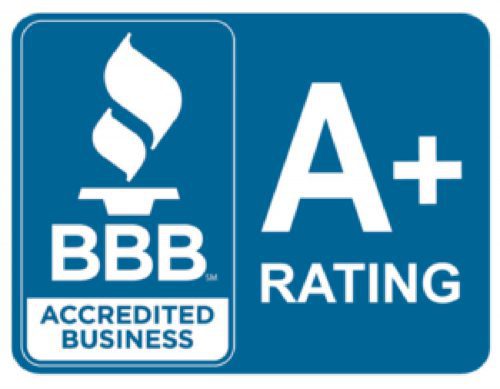Subgaleal Hemorrhage
Subgaleal hemorrhage, also known as subgaleal hematoma or SGH, is a rare but serious condition that can occur in newborns. It happens when blood accumulates on the outside of a baby’s skull, in the space between the periosteum, which is the membrane that covers the baby’s skull, and the fibrous tissue that covers the membrane, the scalp aponeurosis. This type of brain bleed can lead to a baby experiencing seizures, neonatal encephalopathy, or in worst-case scenarios, death.
If there is trauma to the baby’s head during the labor and delivery process, they could experience a subgaleal hemorrhage. For instance, if a baby’s head is dragged, compressed, or pulled in delivery, that would increase the chances of SGH occurring. The improper use of birthing instruments, especially vacuum extractors, typically causes SGH. If the vacuum is used when the baby is premature or the doctor improperly attaches the vacuum extractor’s suction cup on the child’s head, then that could lead to many issues. Leaving the cup on the child’s head for too long or using excessive force with birth instruments like the vacuum extractor or forceps could also cause SGH.
Risk factors for SGH include a prolonged labor, a male baby, an overweight baby, a premature birth, macrosomia, a first-time pregnancy, or cephalopelvic disproportion (CPD).
Symptoms of Subgaleal Hemorrhage
If a baby has SGH, then these signs and symptoms could occur:
- Decreasing blood pressure
- Respiratory distress
- Diffuse fluctuating swelling of the head
- Diminished tone
- Fast heart rate
- Increasing head circumference
- Lethargy
- Decreased urinary output
- Prolonged bleeding
- Seizures
A baby that is not treated properly could end up developing other health issues such as intellectual disabilities, developmental delays, hydrocephalus, seizure disorders, brain damage, and cerebral palsy. Signs of these conditions include:
- Inability to develop motor skills
- Not reaching milestones at a certain age
- Seizures
- Difficulty feeding
- Stiff muscles
- Involuntary movements
- Paralysis on one side of the body
- Muscle spasms
A doctor will need to diagnose a baby with SGH and/or further health issues in order for the baby to get on a treatment plan. Treatment could happen in the hospital as soon as the baby is born and throughout the rest of their life.
Treatment for Subgaleal Hemorrhage
A baby born with SGH will have to be monitored continuously for a certain period of time in order to stabilize them. They may have to get a blood transfusion or volume resuscitation in order to recover. A baby may also need to undergo blood studies to determine whether or not they also have a bleeding disorder.
Treatment for issues caused by SGH will be different depending on the condition a baby has. For instance, if a baby has a seizure disorder, they may need anticonvulsant medications. If a baby has a developmental disorder, they might also have to go on medication and attend therapy sessions and support groups. A baby with cerebral palsy could require surgery, medical equipment, and anticonvulsants and sedatives. Physical and occupational therapy could be helpful, too.
How Do I Know if Medical Malpractice Caused Subgaleal Hemorrhage?
There’s no way to know if medical malpractice caused SGH until you call an experienced birth injury lawyer. They will assess your case and let you know if they believe negligence occurred. Doctors make mistakes all the time, but it doesn’t necessarily amount to negligence. However, with strong enough proof, perhaps your lawyer could prove that medical malpractice did occur.
For example, perhaps you believe your doctor used the vacuum extractor with excessive force or when it wasn’t required in order to deliver your baby. Maybe they did not monitor your baby properly during your labor. The only way to determine if your case is valid is to contact a birth injury lawyer and tell them the facts about what happened.
How Much Will I Receive From a Subgaleal Hemorrhage Settlement?
If you have a legitimate SGH medical malpractice claim, you could receive economic and non-economic damages for:
- Medical bills
- Loss of companionship and enjoyment of life
- Pain and suffering
- Future medical care
- Loss of earning capacity
Your birth injury lawyer will calculate your economic and non-economic damages to come up with a settlement that will cover your costs. The higher your damages are, the higher your settlement could end up being.
Settlement Offers in a Subgaleal Hemorrhage Case
The way the legal process works is once you get in touch with a birth injury malpractice lawyer, they will ask you what evidence you have to support your claim. You may have your medical records and bills, photographs of your baby’s injury, and witness statements from people who saw what happened. If you don’t have some evidence you need, your lawyer could help you gather it.
Then, your birth injury lawyer will make contact with the defendant, your doctor, and attempt to work out a fair settlement offer for you. The defendant may settle right away, try to negotiate a lower settlement, or reject giving you any sort of settlement. At any point, you can ask your lawyer to renegotiate. If your doctor still rejects your offer, then you can take them to court.
Keep in mind that it’s difficult to prove medical malpractice. If it was easy, and anyone could sue their doctor at any time, then nobody would want to become a healthcare professional. You need strong enough evidence to show that medical malpractice did occur and your baby is now suffering from an injury because of it.
Why Reach Out to a Birth Injury Lawyer?
A birth injury lawyer is here for you in your time of need. You just don’t have the energy to fight your doctor, even though you know you’re owed compensation. Your lawyer will take care of the litigation part for you so you can help your baby recover and ensure they are as happy and comfortable as possible.
Subgaleal Hemorrhage Birth Injury Attorneys
If you believe that your baby experienced SGH and/or other birth injuries due to medical malpractice, then it’s time to get in touch with he birth injury lawyers at Gilman & Bedigian. They will fight for you every step of the way to get you the compensation you deserve. Don’t hesitate: Reach out to us today.
Contact Gilman & Bedigian 24/7 for a free consultation at (800) 529-6162.











